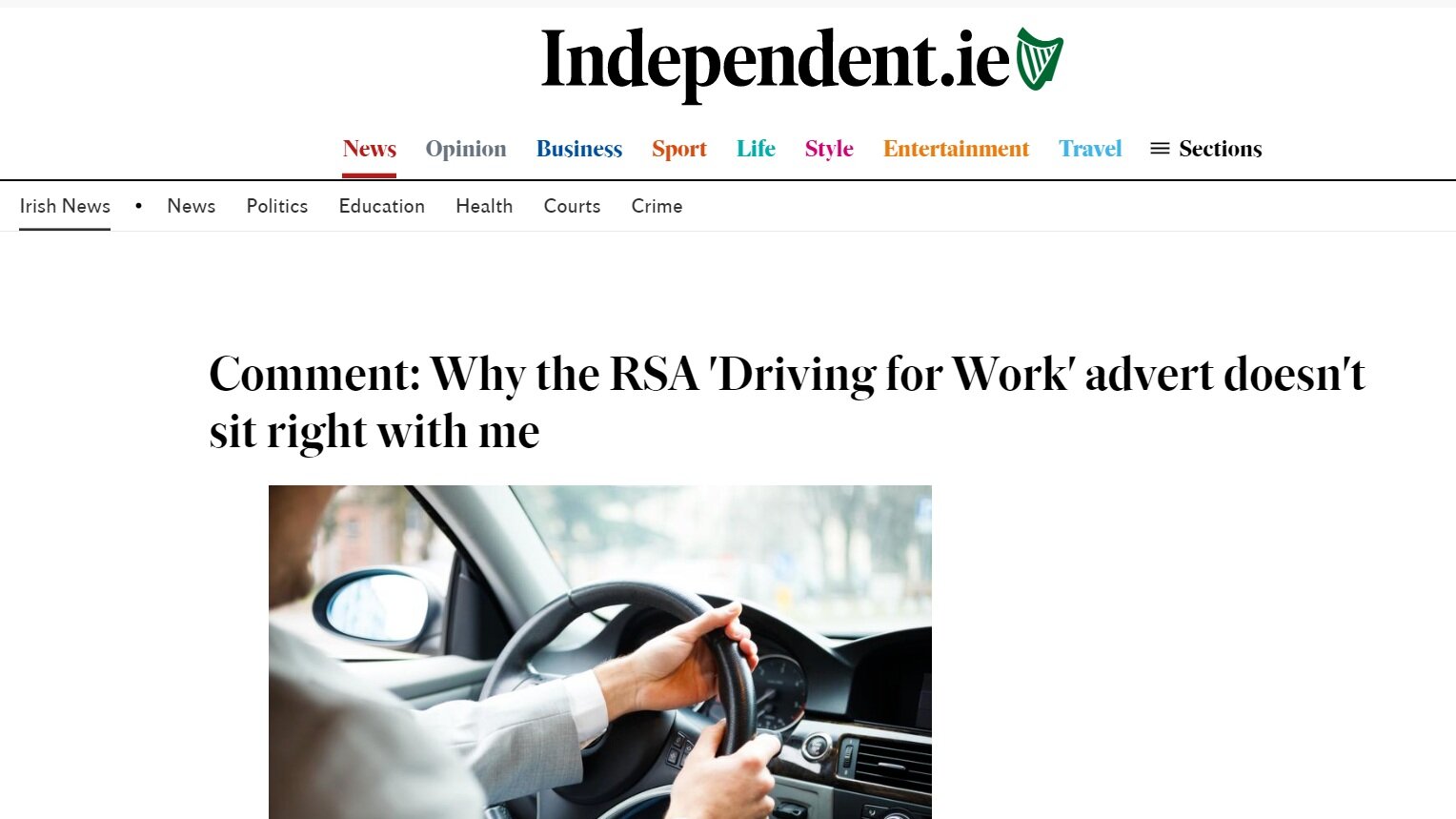Why The Indo Article Misses The Point
In my view, last Sunday's article in the Irish Independent completely misses the point of the RSA #Drivingforwork TV ad. The fact is that employers and staff who drive at work actually have JOINT responsibility to show duty of care.
The reason this ad campaign is happening now is because research shows many employers seem to be unaware of this joint responsibility i.e. they are not or are only in a limited way, managing driving for work.
Perhaps understandably, they assume there is not much they can do to lower road-risk, aside from checking driver licences (maybe), servicing company-owned vehicles and buying motor insurance.
While it may be a "common sense" view that it is unfair to expect employers to "be there", the fact is that there are many ways an employer can positively influence driving behaviour and outcomes. Technology too is making this easier all the time and insurance companies already incentive proactive risk-management measures by businesses.
The article writer correctly points out that training (i.e. "blanket-training" everyone) can be costly and incidents still happen. This is to be expected. Driving is a complex activity and training alone can only do so much.
Similarly, asking "how many of those accidents were down to carelessness on the part of the driver, or how many were down to the employer being at fault" suggests a very simplistic view of this risk. We know that some 90% of collisions (the term prerferred by the RSA) are due primarily due to driver error. It is not hard to see how joint fault can occur. For example, when a serious crash happens and the use of mobile device by the employee is deemed to be a contributory factor, it is entirely possible that this may have been actively or passively encouraged by the employer. In fact, some employers have lost court cases due to not having an appropriate mobile phone policy in place.
So the purpose of this TV ad is to simply "nudge" employers to consider the human consequences of not managing driving and to find out how to make a positive change by visiting www.drivingforwork.ie.
It is also worth remembering that driving is for many staff, the single biggest risk they face while at work. In fact, driving at work is more risky than driving privately, especially if the employer has a toxic, short-sighted culture. So doesn't it make sense to require all employers to take reasonably practicable steps to positively influence and mitigate this significant risk? After all why should driving be treated differently to other potentially life-changing at-work activities?
As long as an employer takes reasonable steps - preferably a series of steps which can include the Safety Health and Welfare at Work Act, 2005 guidance of "instruction, information, training and supervision" - then not only will the employer be compliant with this Act, they can also reasonably expect to avoid business disruption through less collisions, reduce fuel-use and save on motor insurance.
Granted it may not seem like "common sense", but employers who are proactive about managing road-risk, generally benefit much more than those who don't and the www.drivingforwork.ie website (among others) showcases some compelling testimonials.
Rather than "wrapping up employees in cotton wool" as the article also suggests, employers need to be aware of both the risks that employees face and create when driving for work and the positive business opportunities that exist to avoid the many negative consequences.
This RSA TV ad does help raise employer awareness and so should be welcomed. Instead, the article seems to challenge the ad on the basis of intuition and bias. A more open-minded, research-based article could have discovered that over-reliance on "common sense" leads to inertia, complacency and loss - the very things which the ad is seeking to avoid.
Author: Ron McNamara

